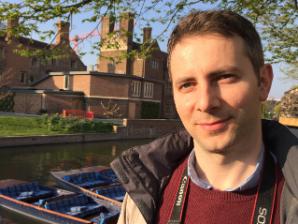News & Events
LII Byzantine Spring Symposium “Blood in Byzantium,” University of Cambridge

During 30 March-1 April 2019, I took part in the LII Byzantine Spring Symposium “Blood in Byzantium,” held at the University of Cambridge, where I presented a paper on "Kinship and Monasticism in Late Byzantine Hagiography."
Abstract
Byzantine hagiography often portrays young holy men who embark on a monastic trajectory by abruptly and even stealthily leaving their parental home, in keeping with the monastic ideal of relinquishing the world and their family. However, bounds of kinship were not completely severed in all cases. The actual amount and type of contact that monastics retained with their family varied with a number of factors. Women, people who assumed the monastic habit later in their life or in an urban setting are documented to have retained more contact with family members outside monastic communities. Additionally, families or kindred people could assume the monastic habit together, even at the same monastery, at times following in the footsteps of a relative, such as a parent or a sibling. Using late Byzantine hagiographic material, this paper investigates how family relations are narratively recast in the context of monasticism. Renouncing the world for a life dedicated to God significantly disrupted and altered the parameters and especially the nature of family relationships, by shifting the emphasis from blood to spiritual ties. This is often seen in stories of young monks who offer spiritual guidance to their lay parents or siblings and set an example and advocate for the monastic way of life. By forgoing all of its worldly and material aspects, kinship is therefore redefined in pre-eminently spiritual terms in hagiographical accounts, in line with the monastic discipline of severing worldly attachments.
Last modified: Wed, 05 Feb 2020 16:09:30 GMT



